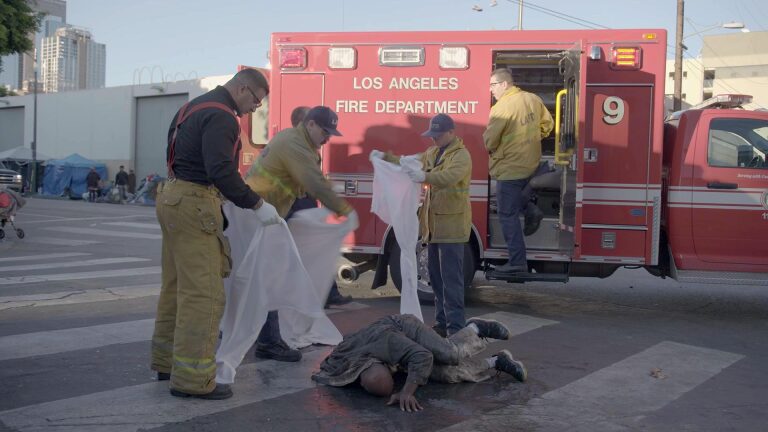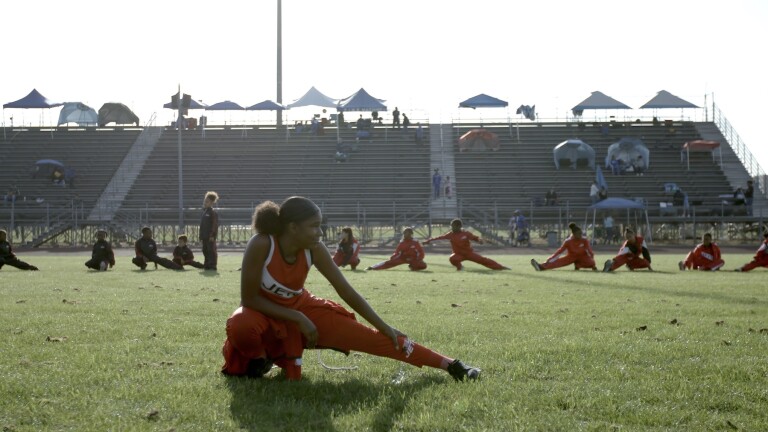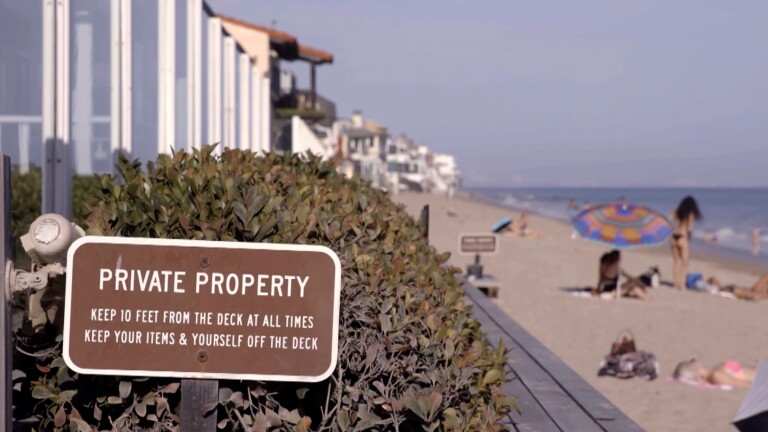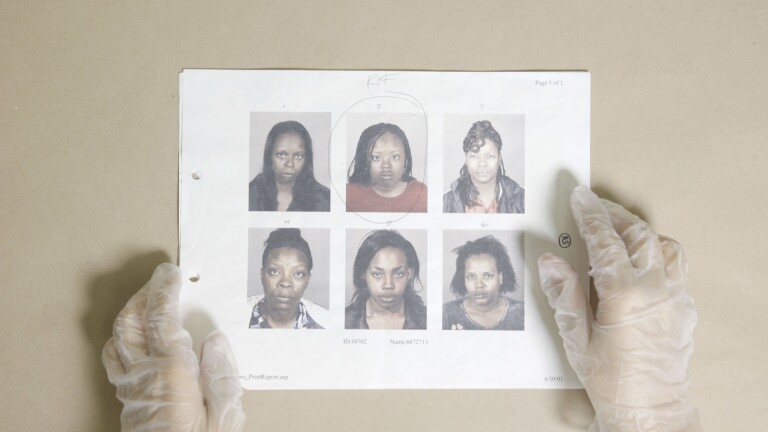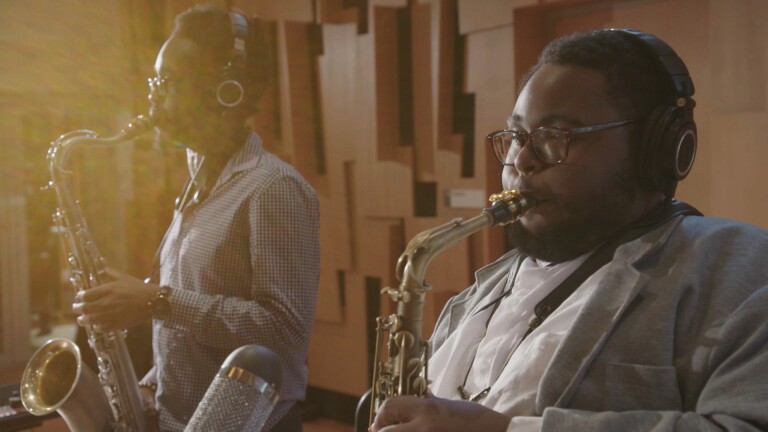
Controversy Still Broils Over Gay Conversion Therapy
Gay or straight, are we "born that way?" The consensus in the medical community is "yes, we are born that way." We can't change who we are, and we shouldn't even try. But there are outliers. They passionately believe a person's sexual orientation can be altered with therapy. But beginning January 1st, that therapy may be illegal here in California for minors.
Transcript:
Sam: So coils would be wrapped around my hands, and you'd be able to turn the heat on or off.
Patrick: It confused and isolated me. I didn't know how to process what I was thinking and what I was feeling.
Vincent: I knew then that I had failed God because if not even an exorcism can work, then something's really wrong.
Sam: So now if we had a picture of a guy and girl hugging, it was no pain. If it was a picture of a guy and a guy hugging, we then had physical pain.
Vincent: Since I thought I had failed God and I was going to hell because I was gay, I figured I'd send myself there now -- I planned a suicide.
Sam: My dad could barely hug me anymore, and I would scream out in pain.
Jennifer London/Reporter: For some young people, the extreme attempts to steer them away from being gay have been so horrific, they felt the need to share those experiences on YouTube and other websites.
But a small minority of people devoutly believe that changing sexual orientation through conversion or reparative therapy is not only possible --
David Pickup/Marriage and Family Counselor: Reparative therapy helped save my life.
London: David Pickup underwent gay conversion therapy when he was younger. Today, he's a licensed marriage and family counselor specializing in this type of therapy.
Pickup: So, authentic reparative therapy is based on the belief that, at least for some men and women, homosexuality has a cause and effect nature, not something that is immutable and naturally inborn, whether that's through emotional, sexual abuse, or any combination thereof.
London: Behind these drawn blinds and closed doors, Pickup is getting ready for a reparative therapy session with a male client. We weren't invited inside for privacy reasons, but we can tell you what happens behind closed doors is controversial, and soon to be illegal for minors in California.
Pickup: Reparative therapy usually uses a highly psycho-dynamic, deep emotional work and techniques that heal or address, resolve the wounds that have created for some men and women the emotional issues that have caused their homosexual feelings.
London: Which Pickup believes doesn't necessarily make them gay. It's that struggle with sexual identity that 36-year-old Aaron Bitzer knows all too well.
Aaron Bitzer: When I was around age 19, in college, I kind of had to admit to myself that I was attracted to men, basically exclusively. I'm thinking, "I must be gay. This must be how it happens, because I don't remember choosing this!"
London: After Bitzer heard a radio interview on reparative therapy, he decided to look at his own family dynamics.
Bitzer: I was never really close with my dad. We never really got each other. If there's no substitute father figure, then often times that develops into same-sex attraction. It's like I know I have all this grief. I know I wanted to connect. I wanted that but I just shoved it aside.
London: And so began Bitzer's slow journey toward reparative therapy.
Bitzer: It really de-sexualized those attractions. It was kind of -- like for weeks after that first weekend, I was like, "Wow, this is really interesting." I still love being with men, and I still find some men very compelling and to get to know them and want to be friends with them, but I don't want to have sex with them.
London: And you did before?
Bitzer: And I did before.
London: Because therapist David Pickup believes that certain childhood traumas can lead to homosexual feelings, he thinks minors should be allowed, even encouraged, to seek this type of therapy.
London [to Pickup]: How do you know when a child comes to you and says, "I'm having these homosexual feelings? I don't think this is who I really am." How do you know that's actually coming from the child and not from the parents who say, "I don't want a gay kid?"
Pickup: Several ways. The first thing I'd like to say is the reverse must be true as well. How do you know if he's gay, whether he is actually gay?
London [to Pickup]: I think the logical argument would be that, given all the stigma attached to being gay and given the struggles, that no child is going to choose to say "I'm gay" when they're really straight.
Pickup: Any therapist who's worth their salt should have assessment tools to help children decide for themselves what their authentic feelings are. Sometimes that may take years. They may delay their decision until they're 18. That's fine; we know how to handle that.
London: This puts reparative therapists at odds with the broader psychological community, in part because the notion that sexual orientation can or should be changed has been out of the mainstream for decades. The bible of psychiatry is called the Diagnostic and Statistical Manual of Mental Disorders. It's a mouthful, and is commonly referred to as simply the DSM. Mental health professionals rely heavily on this book to help diagnose patients and ultimately decide on the best course of treatment. In 1973, homosexuality was removed from the DSM, which means it's not considered a disorder or disease.
Which also means "treating" it can be considered unethical. Dr. Terry Gock is a clinical psychologist and a past president of the American Psychological Association.
London [to Gock]: Is conversion therapy widely regarded as a respectable form of therapy?
Dr. Terry Gock: No.
London: No.
Gock: No, it is not.
London: Why is that?
Gock: Well, partly -- I think mostly it's because it is not based on any supportive evidence that suggests it's effective at all.
London [to Gock]: Can somebody be cured of being gay? Is there a cure for being gay?
Gock: Well, if they find a cure for my being Asian, then there is one. But, no. There has not been any evidence. There has been no research that supports any of that. I would say that there are other effective practices instead of changing their sexual orientation that has not been found to be effective by over 50 years of research.
London: No evidence that it works, but plenty that it's potentially dangerous, says the APA. And this brings us to the first law of its kind that bans reparative therapy for minors. After signing the law in September, Gov. Jerry Brown tweeted:
"These practices have no basis in science or medicine, and they will now be relegated to the dustbin of quackery."
While gay rights activists rejoiced, some conversion therapy advocates, including David Pickup and Aaron Bitzer, began working to get the law overturned, filing two separate suits in federal court.
Brad Dacus/Pacific Justice Institute: It is a draconian silencing of counseling, invasion of privacy, and an outrageous violation of the civil rights of individuals and their parents.
London: Brad Dacus is an attorney with the Pacific Justice Institute, a Christian legal defense group that filed one of the suits.
Dacus: This legislation prohibits all counseling of any kind that in any way steers a child away from same sex attraction.
London [to Pickup]: Are the efforts to block the bill from taking effect after the first of the year, are they rooted in homophobia?
Pickup: Oh no. Absolutely. It puts the government in the role of therapist inside the therapy room, a place which government has no place being.
Dacus: We are so committed, that we are willing to take this litigation all the way to the Supreme Court if necessary.
London [to Gock]: What are some of those indications that it may be harmful to some people?
Gock: There are some studies that have indicated that a number of the participants in reparative or conversion therapy had significant problems, especially after they had not been successful in changing their sexual orientation based on conversion therapy.
London: But Aaron Bitzer says reparative therapy was transformative and gave him back his voice. Now he wants to use it help others.
London: You're, in fact, now studying to become a reparative therapist yourself.
Bitzer: Yes, that's my ultimate goal. It resonates so deeply with me because this is my experience.
Sam: If there are other people who have gone through conversion therapy who are having those feelings of, "I'm the only one alone," you need to know that there are people who have made it through, and you can't change what I never chose.
London: One controversial therapy, two vastly different experiences. And for those who practice and promote reparative therapy for minors, they will continue to find themselves on the wrong side of the medical establishment, and soon the law.

